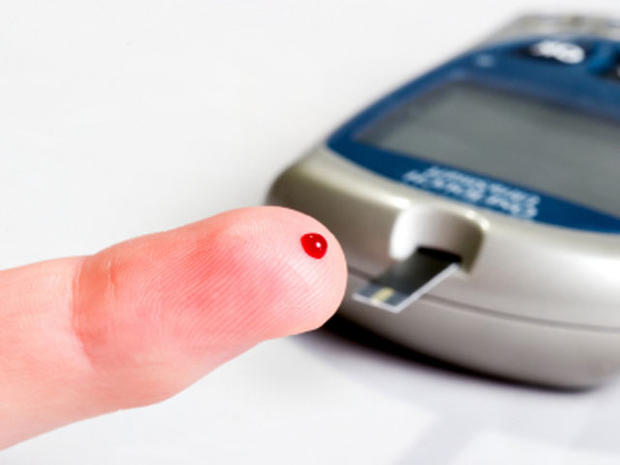Calorie restriction cures diabetes? What study says
(CBS) Have scientists hit upon a simple cure for diabetes? New research shows that calorie restriction goes a long way toward eliminating the health problems that go hand in hand with type 2 diabetes.
PICTURES: 10 deadly myths about diabetes
To test the effect of calorie restriction, Dutch researchers enlisted 15 obese men and women with type 2 diabetes and used MRI scans to check their hearts for fatty deposits that are known to impair cardiac function, according to a written statement released by the Radiological Society of North America. Then they had the volunteers follow a 500-calorie-a-day diet for four months and re-scanned their hearts.
What happened? The volume of pedicardial fat fell significantly - from 39 milliliters to 31 milliliters. At the same time, the so-called "E/A ratio," a common measure of cardiac function, rose from 0.96 to 1.2. And body mass index (BMI), an indicator of body fat, fell from 35.3 to 27.5.
A BMI of 30 or higher indicates obesity, while a BMI of 25 to 29.9 indicates overweight, according to the website of the National Heart Lung and Blood Institute. The BMI of normal weight people ranges from 18.5 to 24.9.
Perhaps most striking, all of the volunteers were able to discontinue their insulin injections after embarking on calorie restriction, study author Dr Sebastiaan Hammer of the department of radiology at Leiden University Medical Center told Medscape. "It is striking to see how a relatively simple intervention of a very low calorie diet effectively cures type 2 diabetes mellitus," he said in a written statement.
Dr. Hammer - whose research was presented in Chicago at the society's annual meeting - said the benefits of calorie restriction persisted even after the volunteers went back to their usual eating habits and regained weight. "These effects are long-term, illustrating the potential of this method," he said.
But calorie restriction may not be for everyone with diabetes, Dr. Hammer said, adding that diabetics considering trying it should consult a doctor beforehand.
The CDC estimates that diabetes affects 25.8 million people in the U.S., or roughly 8 percent of the population. The vast majority of cases are type 2 diabetes, the type associated with obesity.
The American Diabetes Association has more on diabetes.

